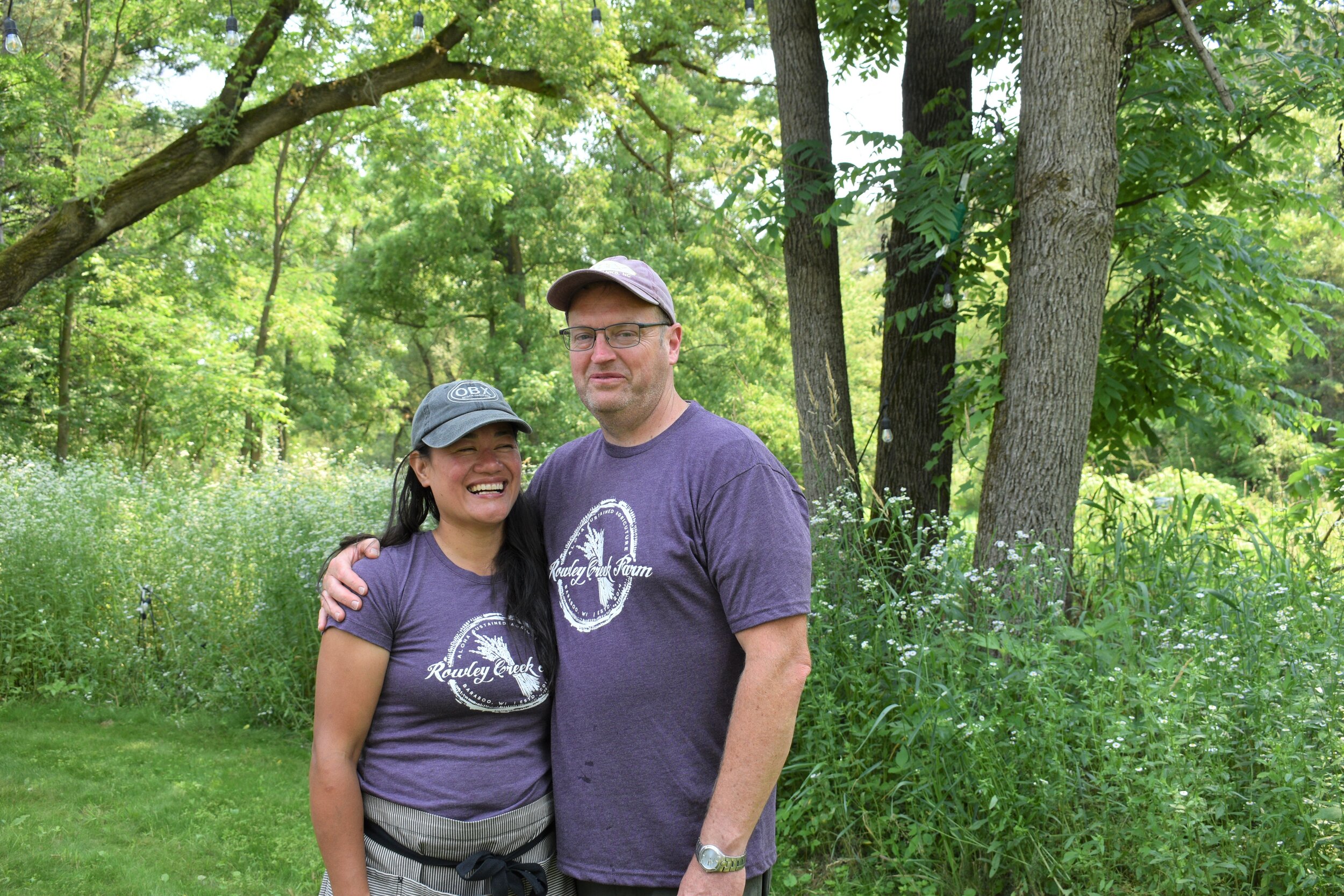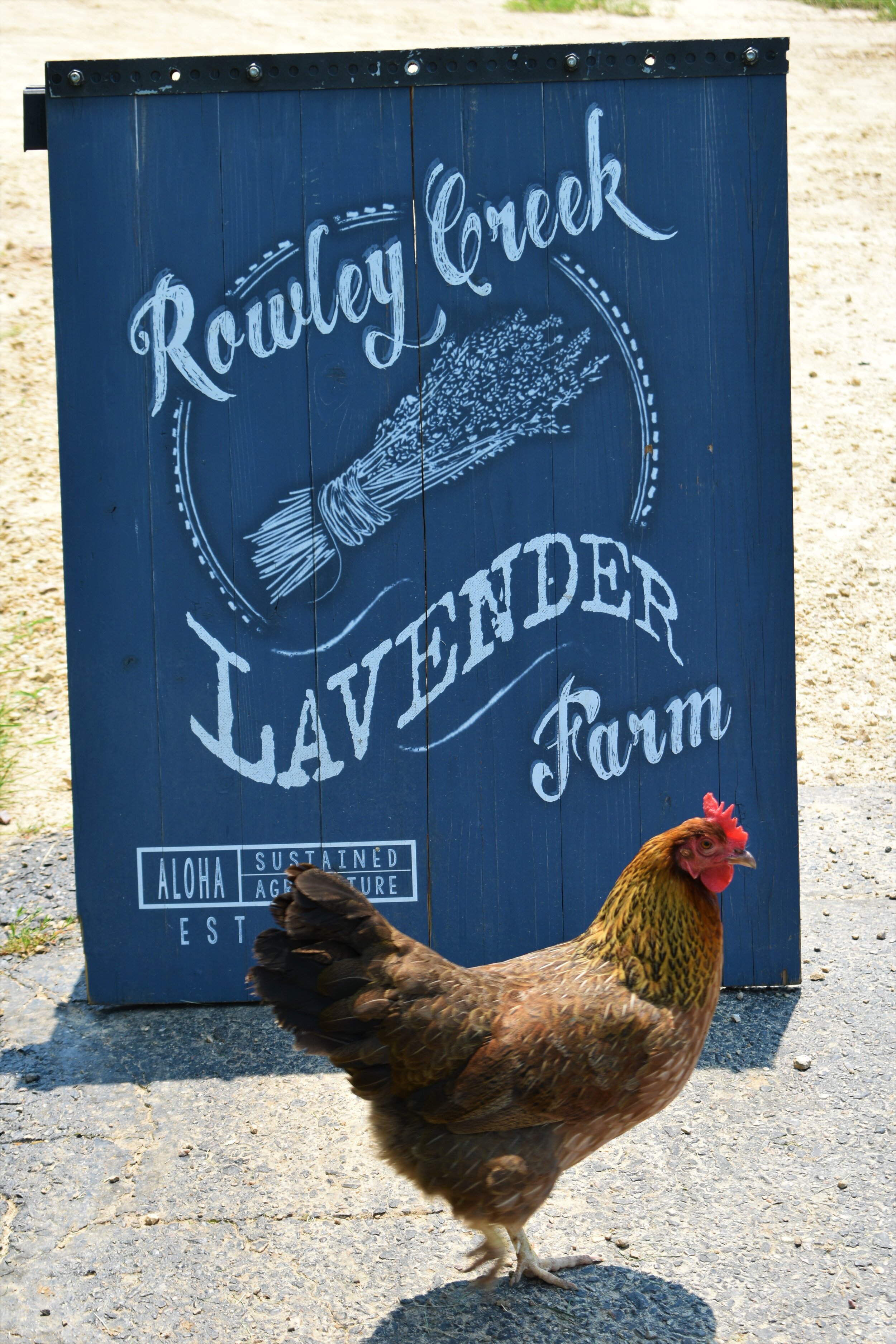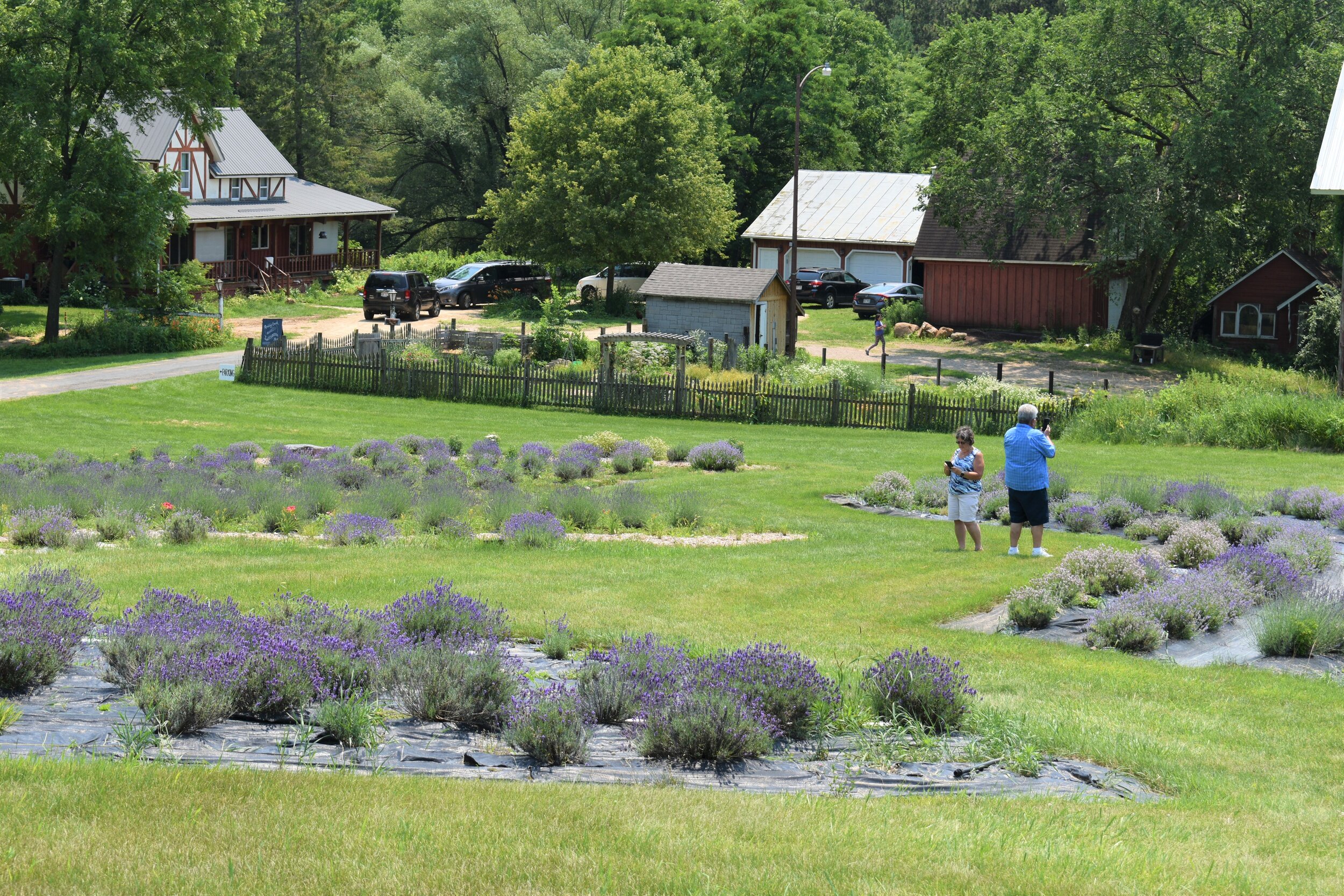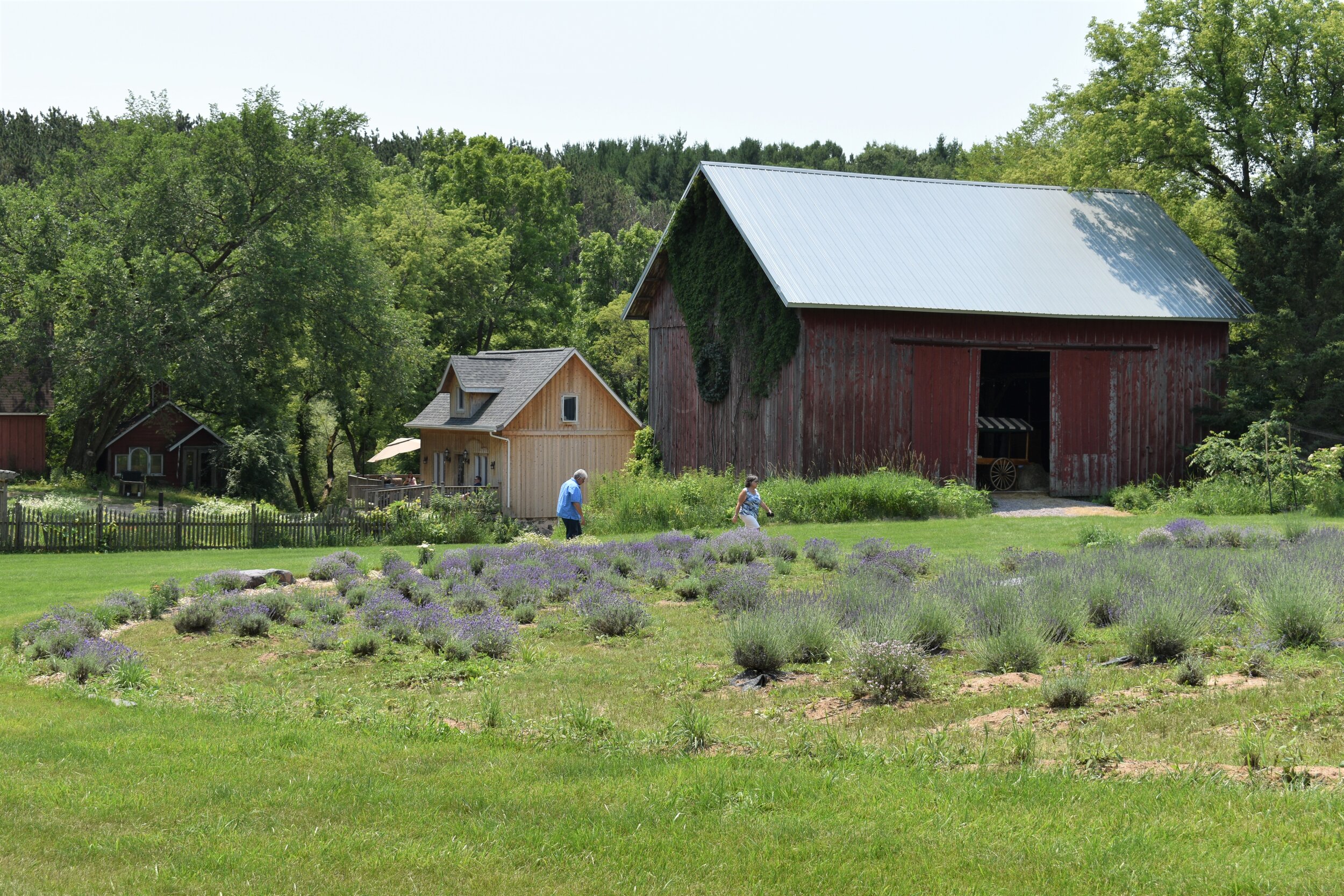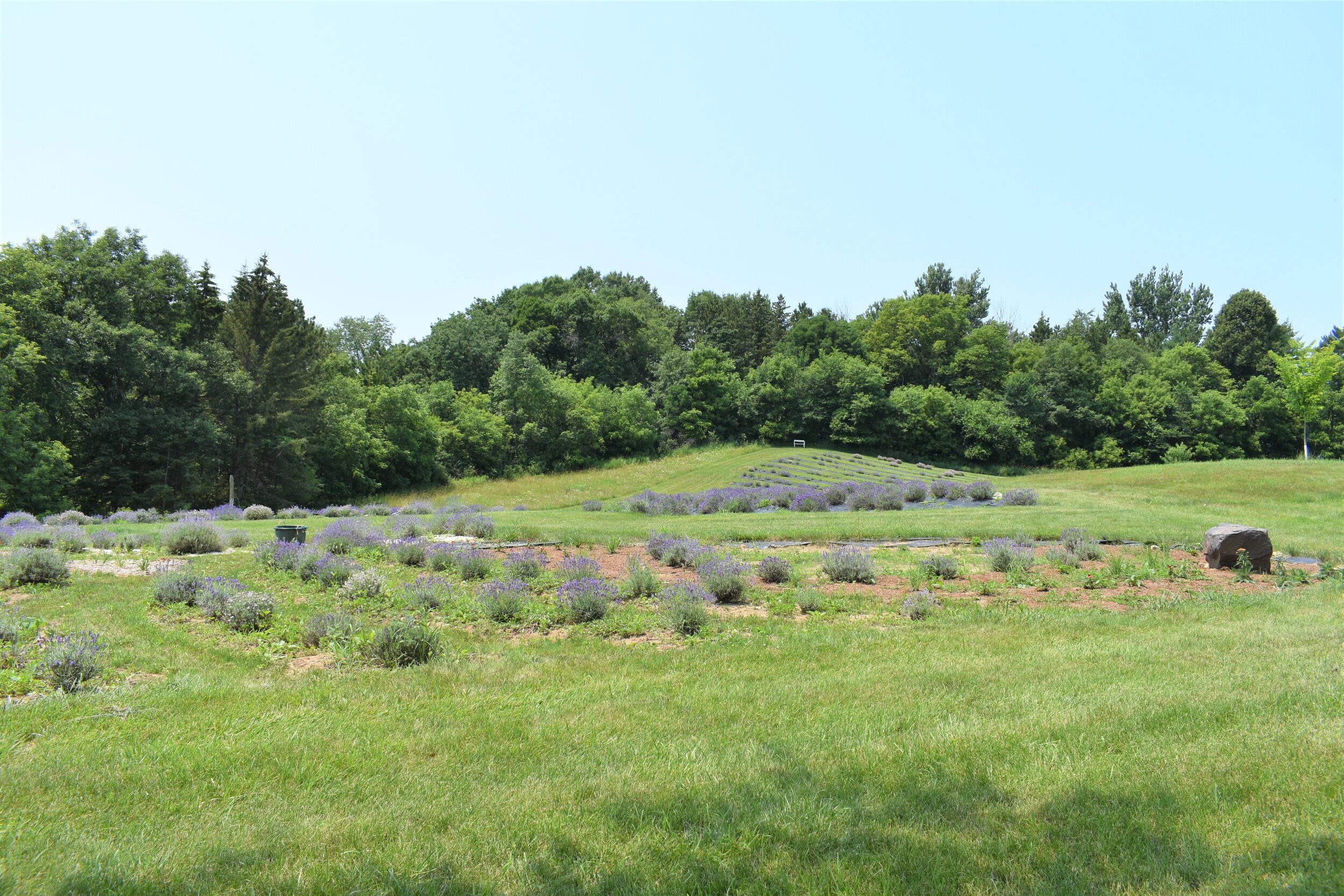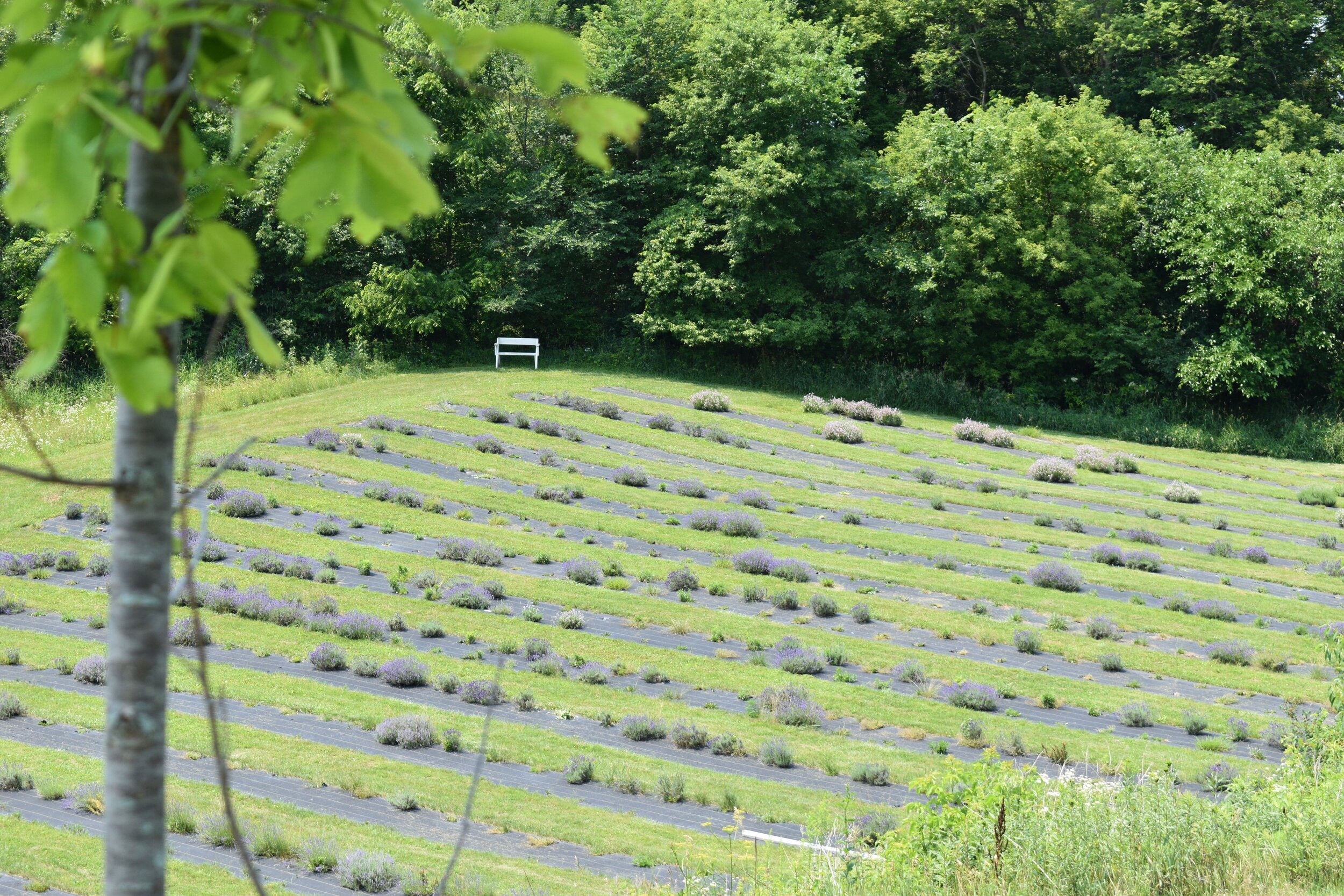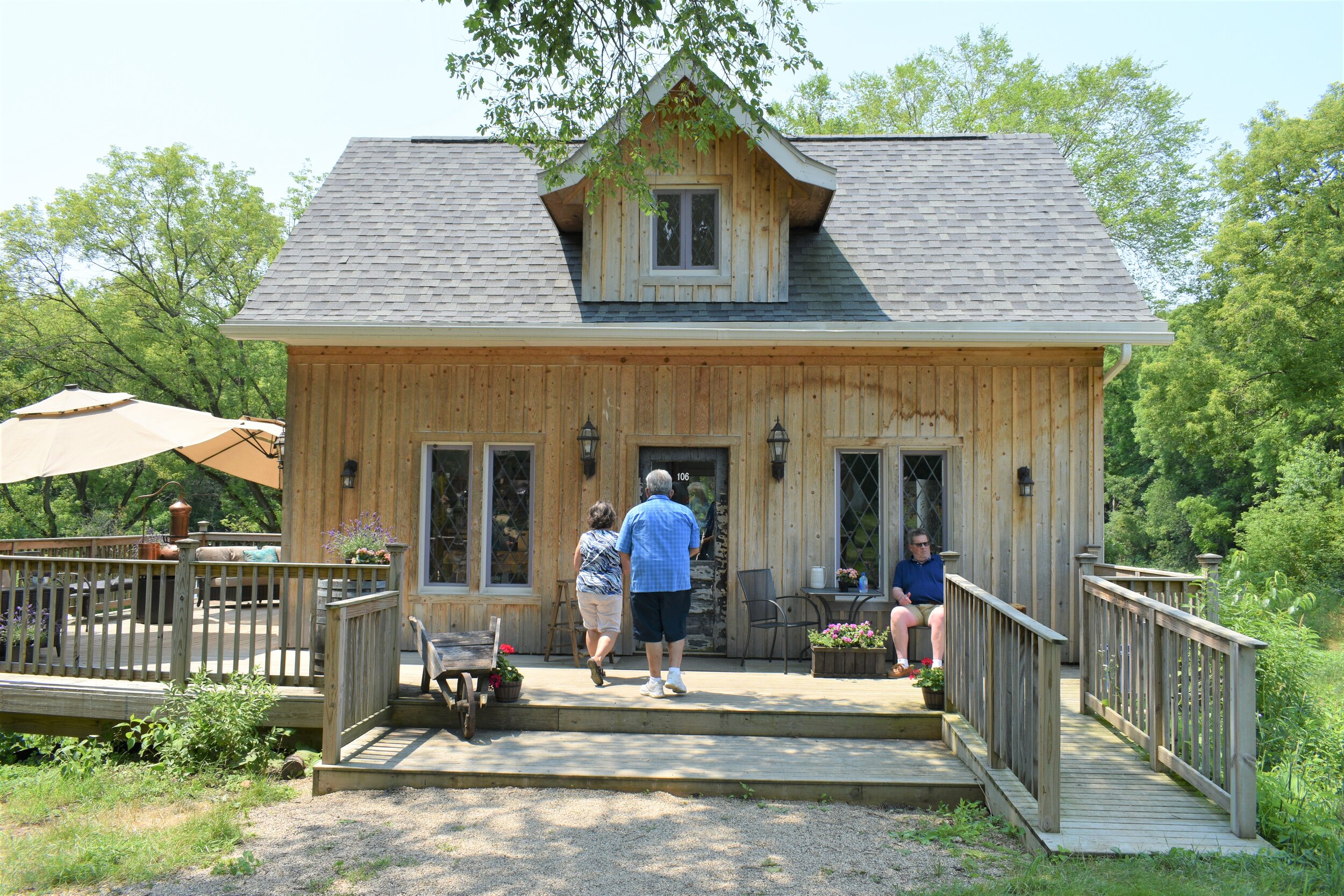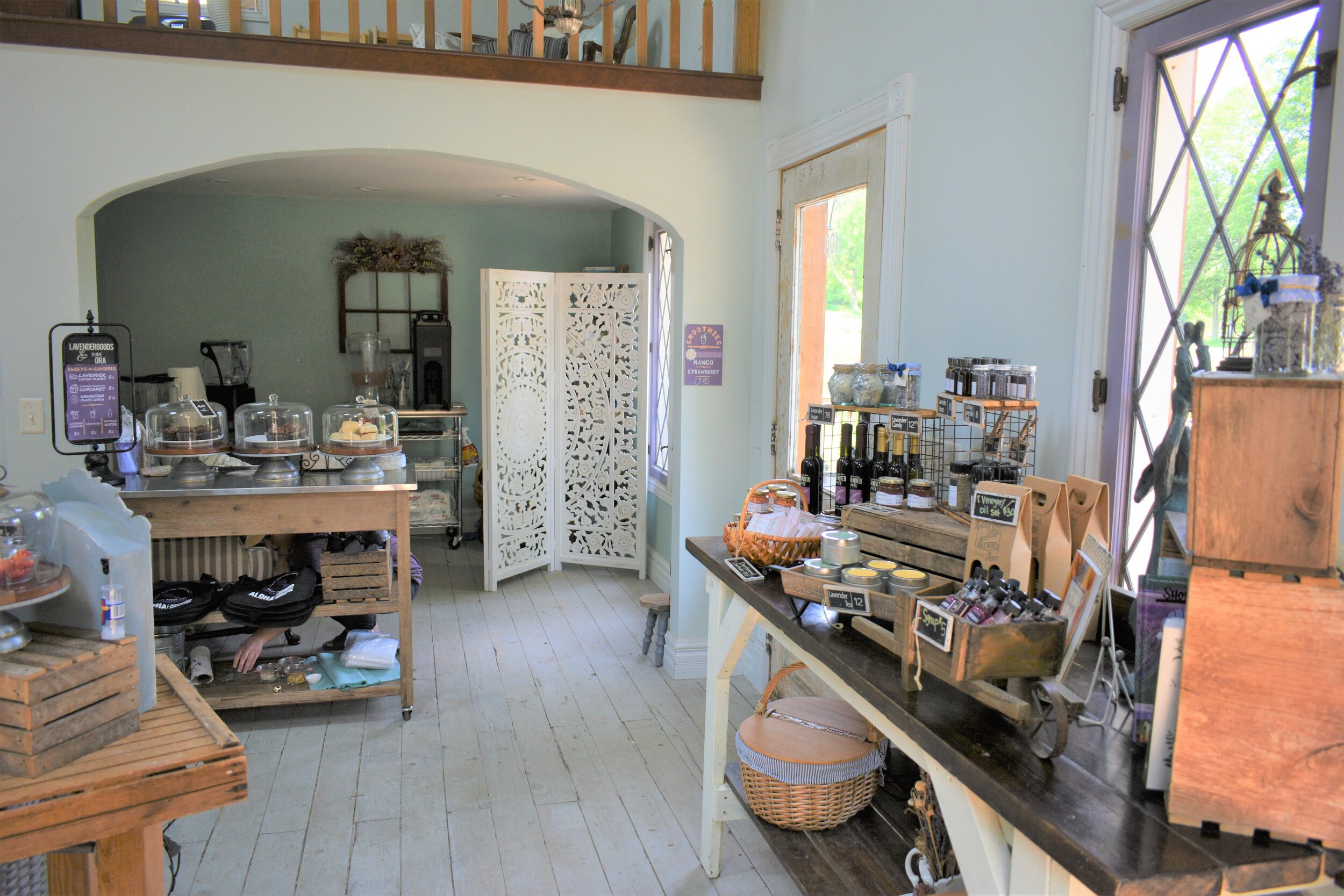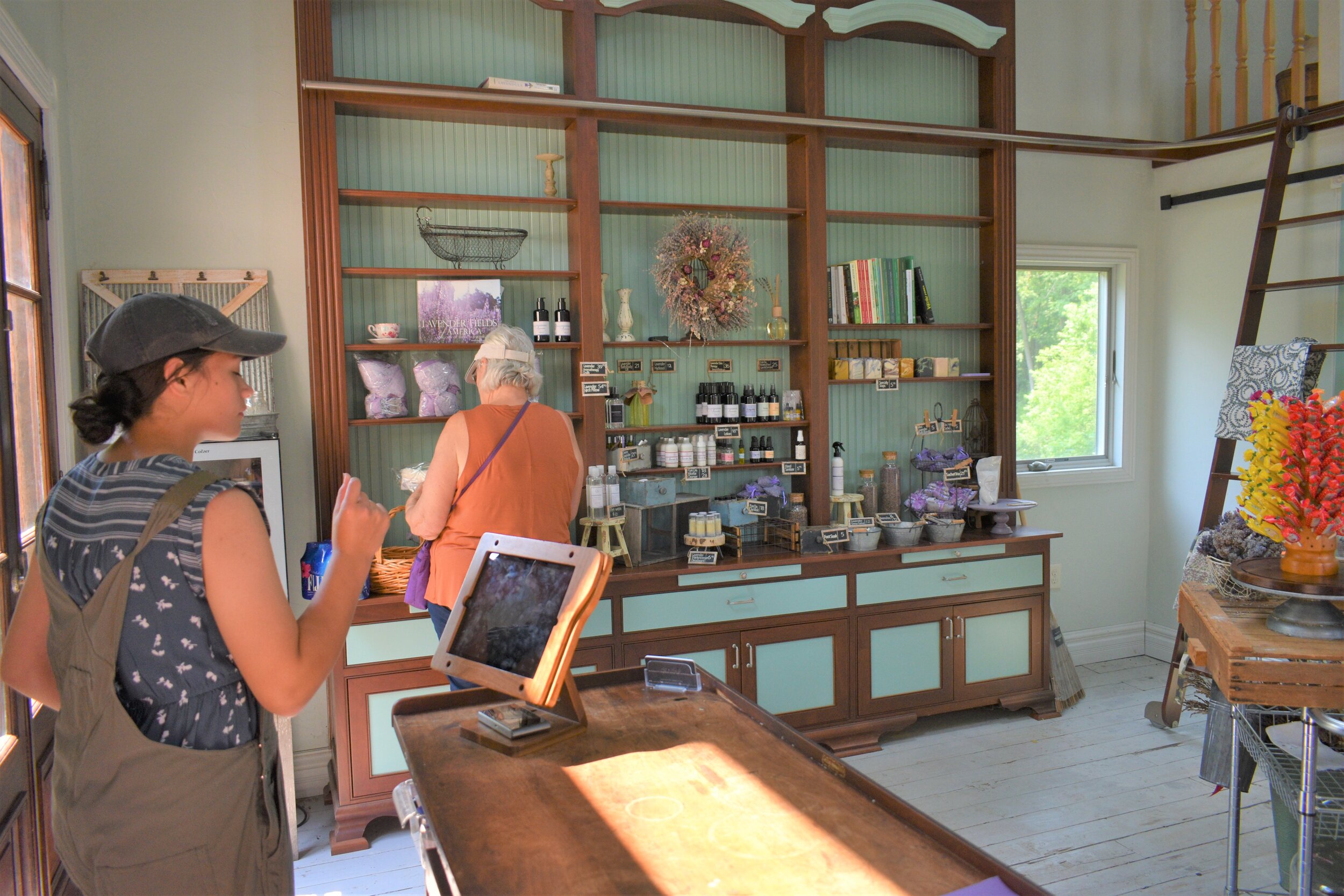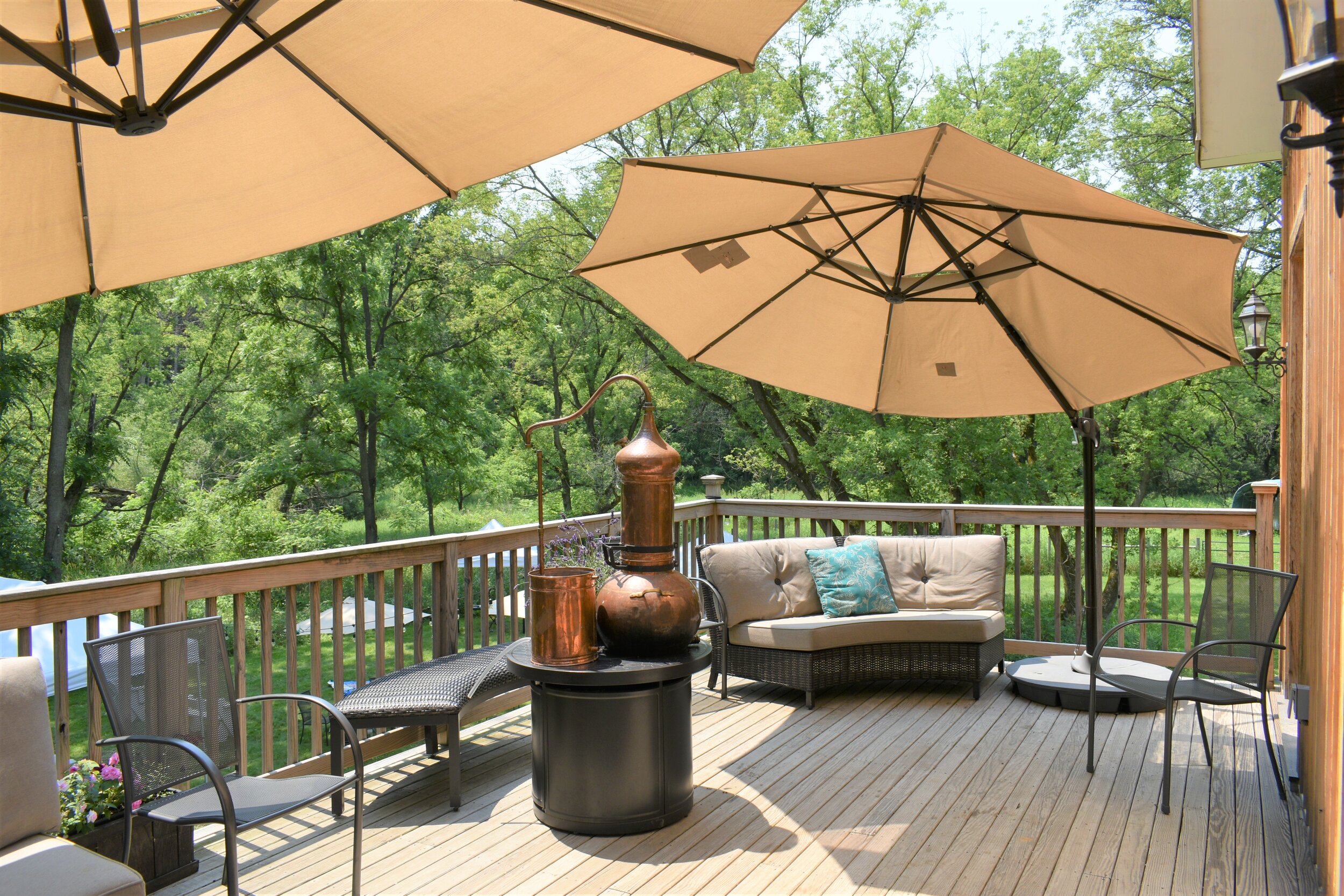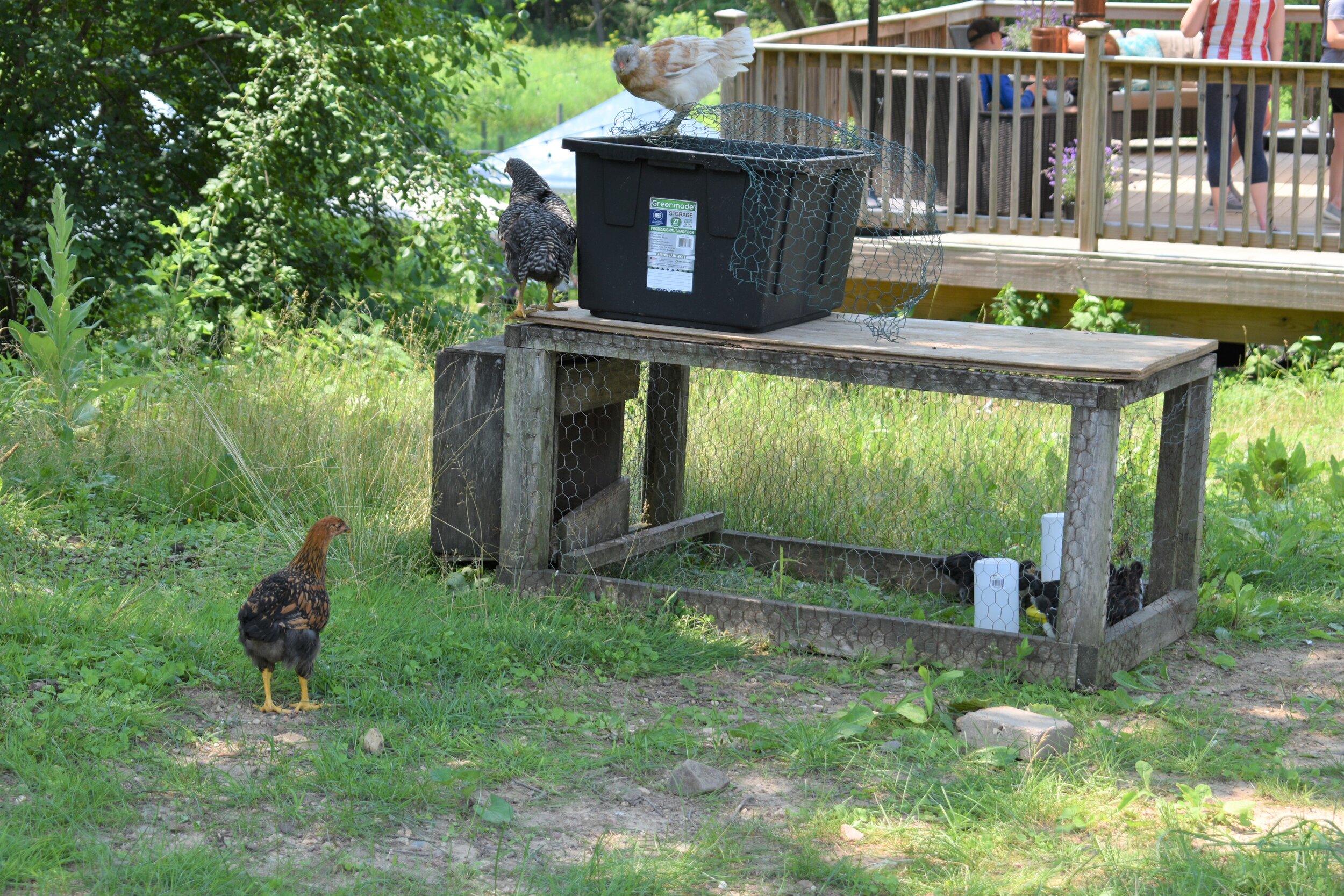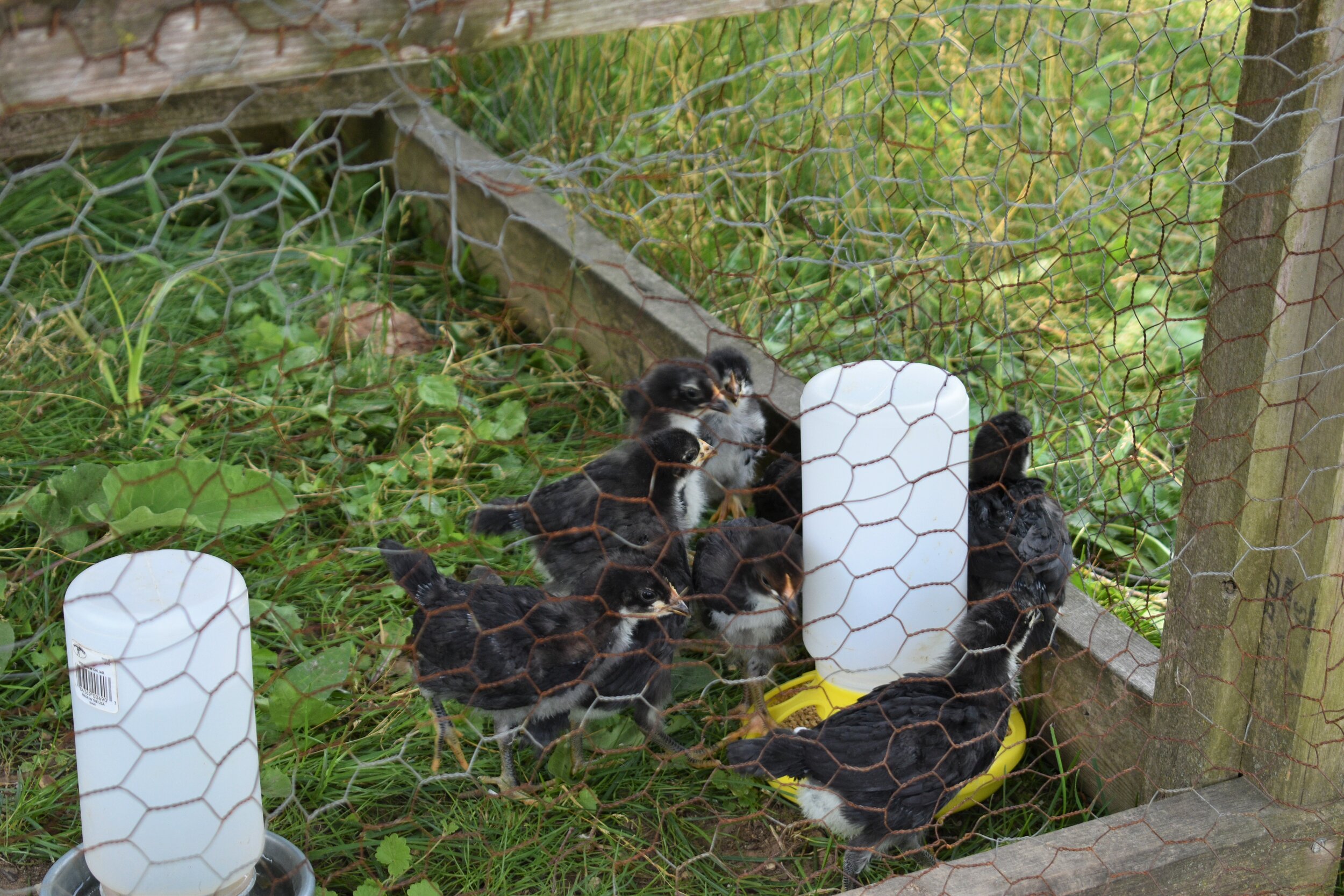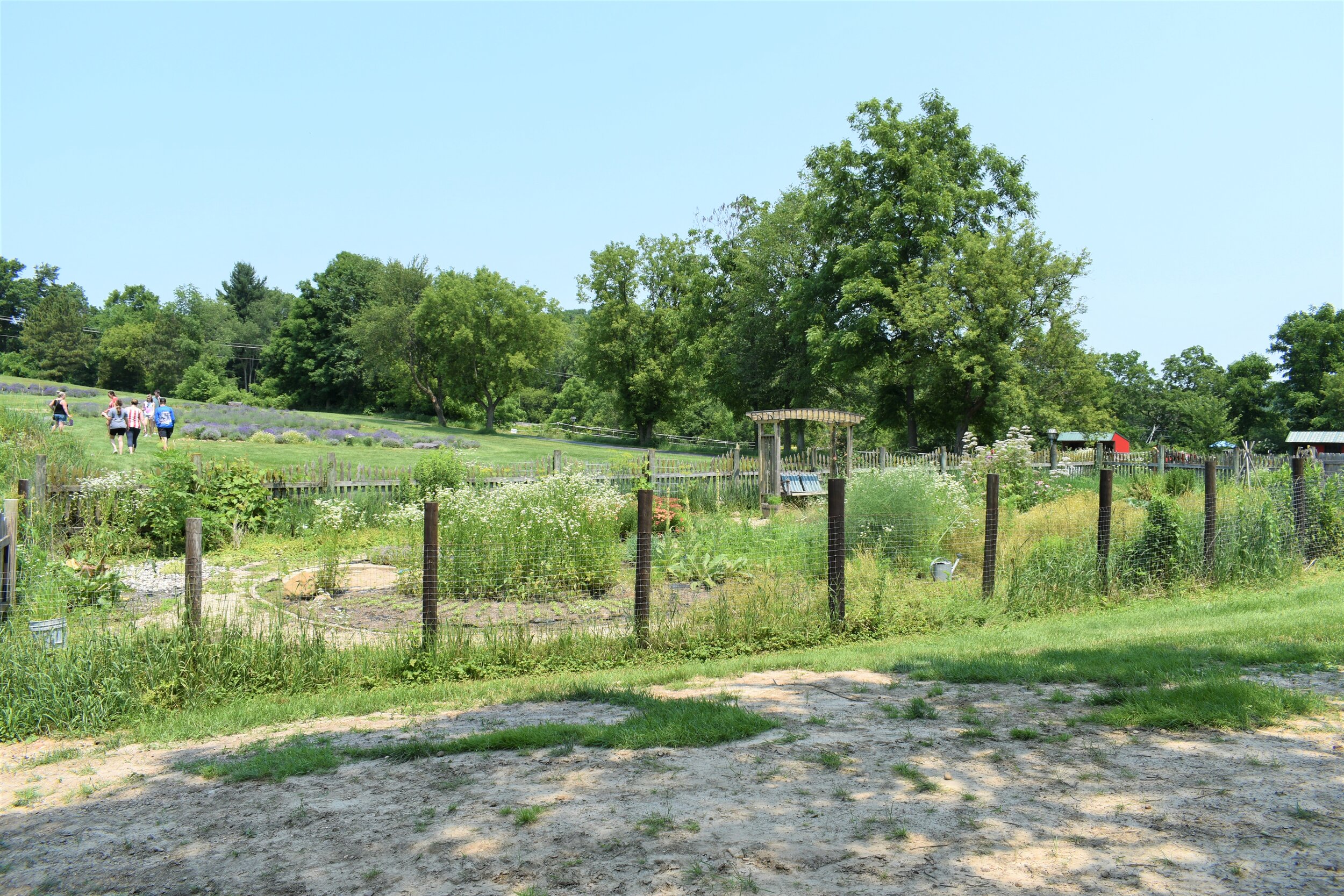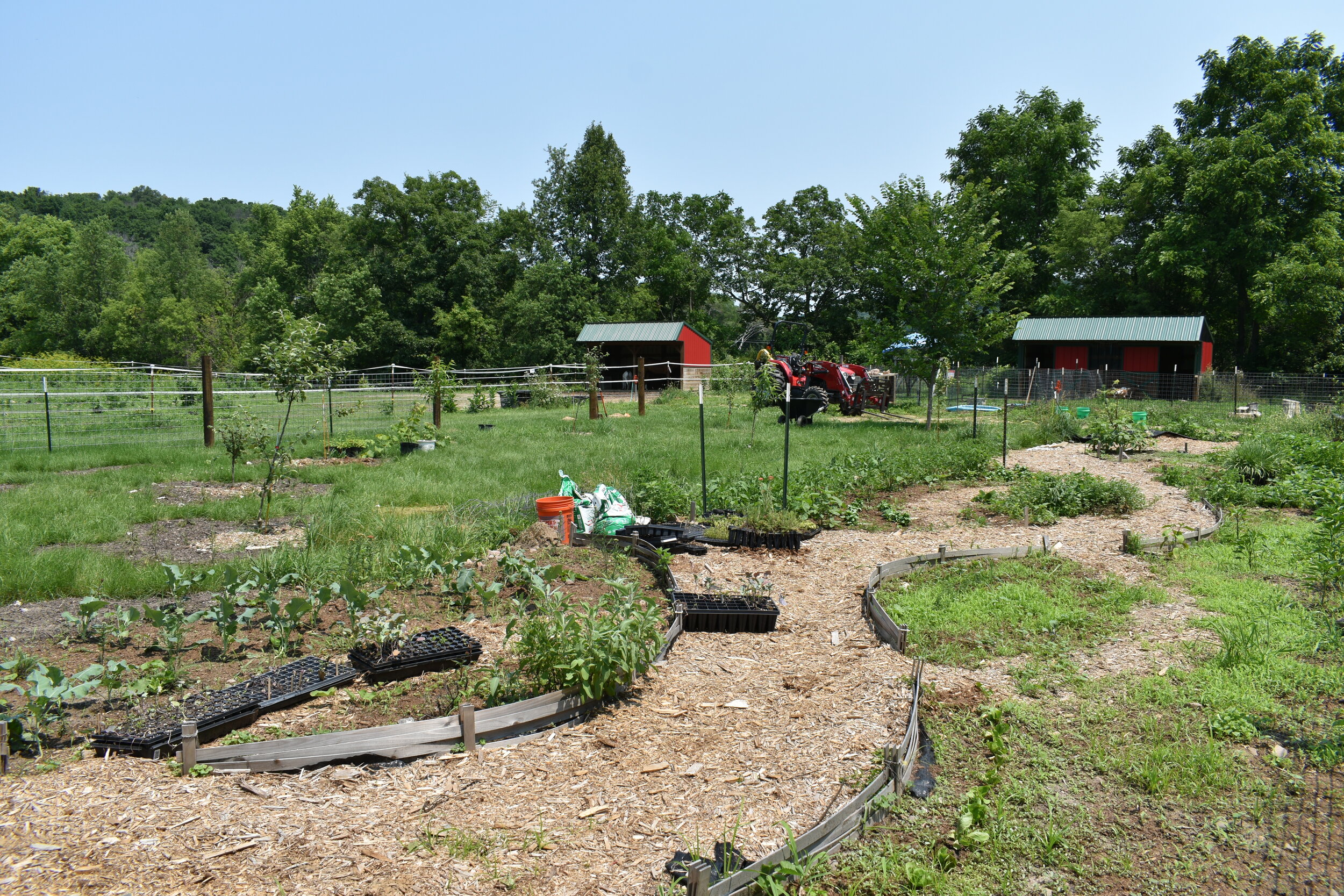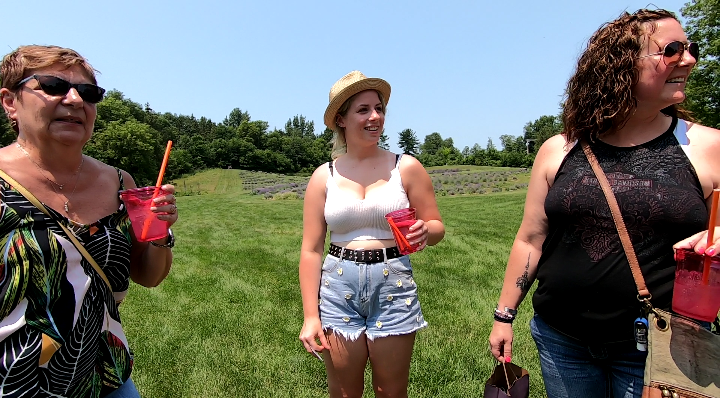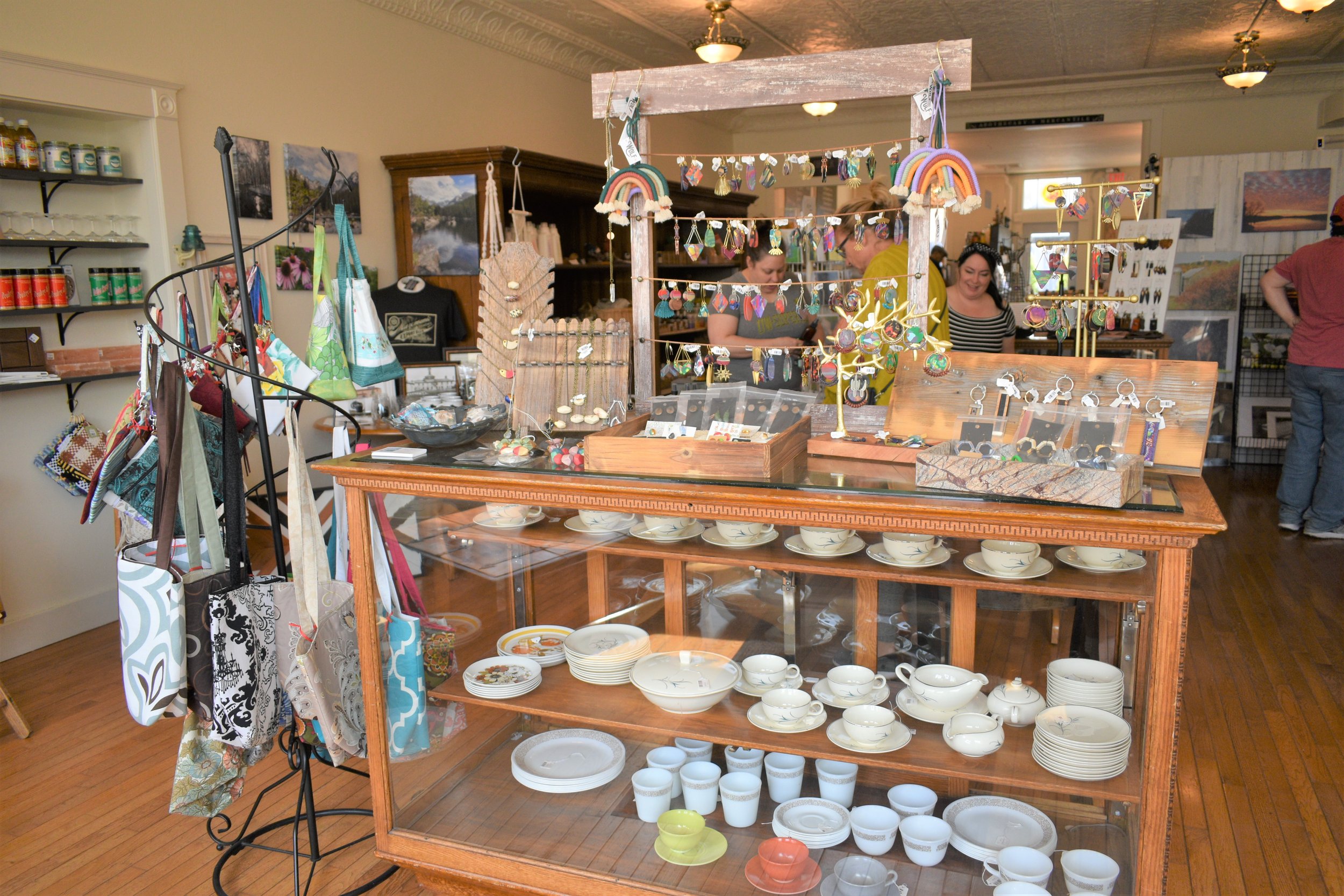Lavender and permaculture play important role in Sauk County farm
Lavender, ahh yes lavender. A well-known member of the herb family, every gardener having a kitchen garden is very much familiar with lavender. It is a beautiful flowering perennial plant native to the Western Mediterranean region. With documented use for over 2500 years, Romans used lavender oils for cooking, bathing, and scenting the air. Its name is derived from the Latin verb lavare- which means, “to wash.” The Romans also used lavender oil in soaps and brought it with them throughout the Roman Empire.
In 1910, French chemist and scholar René-Maurice Gattefossé was working in his lab and had spilled a caustic agent on his hands and dipped them in a nearby container of Lavender extract, instantly realizing some of its soothing properties.
Lavender flowers are bright, purple, and full of strong aroma. The strong aromatic leaves and flowers of lavender have become an essential member of the culinary, medicine, and cosmetic industries.
Rowley Creek Lavender Farm, one of two farms participating in this past weekend’s Sauk County Lavender Festival, is one of three located in Baraboo, Wisconsin. Established as a Lavender farm in 2014, and following sustained agriculture, the farm itself has been in existence for over 100 years. The farm sprawls across 80 acres which is divided by Rowley Creek, hence the farm’s name.
Owners Lady J. and her husband A.J., with the J standing for Jones, have an interesting story on how they chose Lavender and Wisconsin in general, especially since Lady J. is originally from Hawaii and A.J. from New Zealand.
“We didn’t know this area very well. A lot of people, even the Amish will ask 'how did you end up here, this is like a heritage farm? Places like this don't just go up for sale'. The Budig family owned the farm before us. He was the town pharmacist in Baraboo. Sylvester Budig was forever trying to convince his wife to move here, but she loved her home in town which is 7 minutes away. I can understand that a farm is a lot of work and she probably knew that because she probably grew up on a farm. Sylvester used this as a hobby farm for him, and they used it for their own family events and things like that. After he passed away, they decided to sell the farm. That is how we ended up with it,” Lady J said.
To the Joneses, the farm was like a blank canvas when they bought it. At the time of purchase the house hadn't really been lived in for over 30 years, Lady J admitted. “The squirrels and animals had the run of the house,” she said with a laugh. “I think that is why we were able to get it at that price.”
All of the buildings on the property are original to the farm, which makes them over 100 years old. “If you take a look in our (retail) shop, it was meant to be a farmstay where people could come and stay overnight, which would be amazing because everything would be decked out in lavender and you'd sleep so well. We might do that one day down the road. When we looked at renovating the barn, it was like no. And she was basically saying, 'Please don't touch me. Leave me alone.' So, you can hear her old bones saying that. But yeah, we've done quite a bit of work,” Lady J said.
The retail shop took the Joneses about two years to renovate. “We've just put new siding on it, and then put wallboard in there and fixed up the windows and stuff like that. We did have to replace the entire roof on this building, which ended up being a good thing because then we got the dormer on there and a couple of skylights. I love natural light, it's just, I love natural light.”
Lady J. and A.J. not being from this area, rather Hawaii and New Zealand respectively, approached farming a bit differently. Lady J. said maybe it'd take someone from a completely different paradigm to have a different idea in approaching farming in the Midwest. “Not being from this area, we just wanted to do something different from corn and cattle that we saw everywhere. Also, I'm a certified permaculturist in which we focus on care of the earth and care of people and care for the future.”
Lady J. said permaculture played a large role on how to run their farm. When they looked at lavender, it had a lot of the qualities that they wanted to draw out. The Joneses felt not only would it be a great plan for ag-tourism, it’s also an herb with medicinal properties. “You can do so much with it, from a cut flower plant in the garden, or using it in bath and beauty care products.” In fact, three seasons ago when we they lost 90% of our crop because of weather related issues, it was their value-added products that carried them through. Lady J. pointed out that year had a much later than usual spring that included a week-long of the ground freezing, and previous to the freeze the plants had all started waking up. In addition, all season long, all summer long, it was rainy and wet. “Lavender-one thing it does not like, and does not do well with is water.” Native to Middle Eastern regions, Lavender tends to like that kind of Mediterranean climate, dryer. “Anyway, so we decided we wanted to try something different, something unique, plus the flowers smell so good. We were actually the first that started in this area and since we started, two other farms started up, and now we're back down to two instead of three.” In fact, when the Joneses put their first plants in the ground, they didn't open until the following season, because they wanted to make sure that it grew before it was announced to the world that they were growing lavender.
“We do a lot of permaculture practices here on the farm, and we're hoping to kind of evolve into that. We also grow a lot of medicinal herbs and things like that, and we use those in our products that we create. We're hoping to pull more of that permaculture mindset and really educate people on what it means to take care of the land, and what it means for the land to take care of us, and how, you know, we as humans, we often feel like we don't have any solutions, or that things are so complicated. Really, it's us that make things complicated, we're the problem. We really want to help change that mindset, not just for those who are in our generation, but especially for the younger generation. So, looking to do a lot more educating as far as permaculture goes and hoping to help be able to break through paradigms that our society imposes on us like, you know, what can and cannot be done. I think that that's kind of what the lavender is for us,” Lady J. shared.
This year the Joneses started expanding on their vegetable garden. Pointing to an enclosed garden not far off Lady J. said, “So what you see out here in the corner, with all these flowers, that used to be our primary vegetable garden, but we've slowly been replacing veggies with more herbs in there, that's becoming more of our medicinal garden. We call it agraria, and our little agraria is kind of an iconic way of permaculture thinking, so we're implementing different methods of growing and different methods of planting. One of the cool things in our agraria you'll notice, is that we're incorporating trees. So, they're called food forests, and it's actually more conducive. It mimics what you see in nature where food is actually growing under trees. That's typically how we do things, and when you wild forage, that's what you're doing is harvesting food that grows under trees. It’s just a symbiotic relationship between plants. Our food is out there and growing among the trees and the herbs and kind of altogether.”
While growing plants is certainly a focus of the farm, Lady J. acknowledged that livestock is an important part of any ecosystem. The Joneses feel what livestock brings to an ecosystem is amazing, realizing it is an added element. “This year, new to the farm, we've got our ducks. When we brought the ducks home, everyone was first really excited, but it's been quite a challenge. Not only are they super stinky, and very just like very stinky, we thought that they will be a little more friendly towards us, but they really do stick with their family. So, they know you as a foreigner,” she said.
“I love watching and observing animal behavior. Other things that we have here on the farm are honeybees. We've also got some donkeys and those help keep the coyotes at bay. They really do. And then we've got our horse, chickens, and some goats as well, which we were milking but are no longer milking until we breed them again. One of the beautiful things about livestock is you don't have to pay payroll taxes on them. They just do the job that needs to be done naturally, and they love you for it because you feed them and provide for them. The chickens help do a great job scratching up the ground, eating some of those nasty bugs that we don’t like to have around here. Kind of like the bats, everything here on the farm It really helps to improve the ecosystem as a whole.”
Diversity in farming practices, Lady J. shared, has led to an increase of birds, different kinds of birds and different kinds of insects. “It's really exciting to see. It's been about three years now since we started implementing some of these processes, and it's kind of exciting to see things starting to actually come back to life,” she said smiling.
The Joneses have made running the farm truly a family affair. With 5 kids, there is always a helping hand in keeping things running smoothly. “They're all helping me out today. My second oldest usually runs the shop she's 16. My oldest is 19 and is the one that does all the baking. My son, who is 14, he’s a musician. He plays all kinds of music, though all the kids play music. Then I've got my two little kids who are over helping out with the kid’s booth. Having a kid's booth was a must on Lavender Fest. You can't forget about the little guys,” she said with a chuckle.
Three visitors, seemingly enjoying the farm, just might have been an example of how people come to find Rowley Creek Lavender Farm. Nancy, has been coming here for the last nine years, stressing that “they're all very friendly”. “I've had a private session with like the spa treatments, and their food is awesome. The cupcakes, never thought I would like lavender in food, I love lavender in food. I have almost everything in their store that they sell because I've been coming here so often. Lady J.- her family is my family. We live an hour and a half from here so we come only in the summertime when she's open.” Carly, Nancy’s friend said, “Nancy brought me here because we were on a trip. I didn't know what I was gonna expect, but I come here and it's really pretty. The cupcakes were really good and everything smells so good- you walk into the store and you get that like whiff of lavender and it's just beautiful here.” Nancy’s other friend Angie shared Carly’s sentiments saying, “This is our first time here today. Nancy brought us here and the place is truly magical. I was astounded as far as what lavender can be used in. Definitely recommend to anyone just looking to escape from life for a while and see some beauty.”
For the adventurous visitor, the Joneses keep tracks mowed around the entire property including across the bridge and into the back 40. “Right now, we are rejuvenating the soil in our back 40, so we've got a beautiful cover crop growing back there- 19 diverse seeds that are designed to break up the soil and to put nitrogen into the soil and to pull out radiation. So that's a process that's going to take some time but it'll get there. We're looking at creating more organic mass back there just by growing plants on the top soil.”
As for the future of Rowley Creek Lavender Farm, Lady J. said she wasn’t sure if they would be there forever. “We named the farm Rowley Creek after the creek that crosses and pretty much splits our property in half. Primarily people come and go, but the creek should always be here, at least we hope it will always be here. I think that's what we wish for this place. I hope people feel a special energy here when they come to visit, we do our best. As Hawaiians, we consider ourselves to be stewards over the land, there's no such thing as owning land. You just can't do it. You own something, you own the land, you own the air, but you really can't. In fact, if anything, it's the other way around you. It owns you and we exist because of it. The same with the water. You know, for us, water is so vital and if we don't take care of these things, there will be nothing for our future generations to cherish. When we decided to name the farm Rowley Creek, that was a no brainer because all life stems and revolves around water. Our family, we're just doing the best we can with the knowledge that we have. I think a lot of people are in that same boat doing the best they can with the knowledge that they have. And sometimes I think our world is so crowded with false ideas and solutions that can actually achieve or accomplish solving the problems, the real problems that we face in life, and yet, it's all around us. The answers are always all around us. I know that's kind of more of a spiritual tone to it, but it's the truth.”
Visit Rowley Creek Fam on Facebook or at https://rowleycreekfarm.com/
